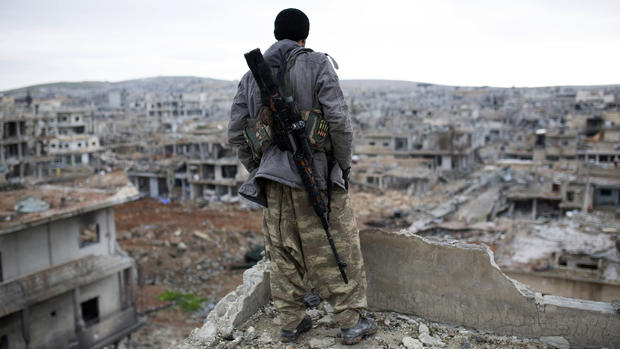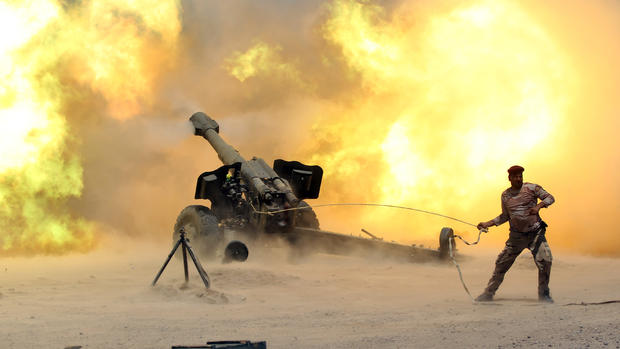U.S. and Turkey mulling "safe zone" in northern Syria
WASHINGTON -- The U.S. and Turkey are considering carving out a portion of northern Syria to become a haven or de facto safe zone for refugees and Western-backed rebels.
However, the White House is adamant that any joint efforts will not include the imposition of a militarily enforced no-fly zone.
Capt. Jeff Davis, a Pentagon spokesperson, underscored on Monday that they will not be working on a no-fly zone, and added that their recent talks with Turkey are an attempt to "deepen our cooperation, broadly."
The two countries have agreed to the shared goal of establishing an "ISIL-free zone" to ensure "greater security and stability along Turkey's border with Syria," a senior Obama administration official told CBS News, using an alternate acronym for the Islamic State of Iraq and Syria (ISIS).
Details of how such an area might be imposed and enforced remain murky, in part because they are still being worked out by the two allies.
A Turkish diplomat described the carved-out area as a "safe zone" and said it would be formed "naturally" when areas in northern Syria are cleared of ISIS forces.
In spite of the U.S. resistance to a formal no-fly zone, the Turkish government envisions air cover and protection for moderate Syrian opposition forces in the region, including the Free Syrian Army (FSA), who are fighting against both the regime of Syrian President Bashar Assad and ISIS forces.
The U.S. has been training members of the FSA, but conceded earlier this year that the effort was lagging well behind schedule, with just dozens of troops made battle-ready instead of the hundreds anticipated.
President Obama and Turkey's President Recep Tayyip Erdogan discussed the "safe zone" concept in a phone call last Wednesday, when they formally agreed that Turkey would open up air bases at Incirlik and Diyarbakir for use by the U.S.-led coalition fighting ISIS.
Diplomats, led by retired U.S. Gen. John Allen, have been working on variations of a protected zone for months.
Speaking Thursday at a security summit in Aspen, Colorado, Allen said Turkey's decision to allow coalition forces use of its airbases was "very significant," but said it would not be accompanied by any U.S.-protected military zone.
A no-fly or buffer zone along the shared border with Syria has been a long-standing request of the Turkish government.
Last week saw Turkey dramatically escalate its involvement in the campaign against ISIS, allowing the coalition use of the air bases and stepping up its own airstrikes agianst the Sunni extremists across the border in Syria.
Ankara, which had long resisted calls from Washington to take a firmer stance on the terror group by cracking down on illegal cross-border traffic, changed its posture after several attacks near the border, including a suicide bombing blamed on ISIS that left more than 30 people dead in the town of Suruc.
The Syrian opposition dismissed the news, telling CBS News on Monday that "U.S. officials are playing with words."
He said the White House would not authorize any air exclusion zone in areas where the U.S. and Turkish airforces are carrying out strikes against ISIS.
"Meaning Assad's airforce can continue to operate with impunity against civilian targets as long as coalition aircraft are not threatened. How is that safe?"


